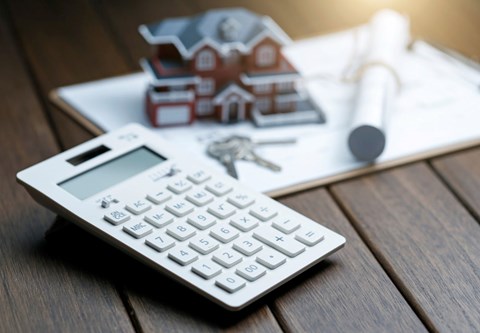Valuations in Family Law

Are you separated or divorced and entering into property settlement negotiations with your former partner? One of the first steps to negotiate a fair property settlement will be to determine the value of your assets, liabilities and any financial resources. But what happens if you can’t agree with your former partner about the value of certain property?
This article explores the different types of valuations in family law and how they can assist you and your former partner to reach a final property settlement agreement.
What are valuations in family law, and why do we need them?
Valuations assist you and your former partner to determine the total value of your asset pool. It is beneficial to agree on values at the commencement of negotiations as this will enable your lawyer to provide you with accurate advice in relation to the distribution of your assets. This enables you to make informed decisions that protect your financial future.
If you and your former partner are unable to agree on the value of an asset, you should consider whether you need to obtain an appraisal or a valuation.
Appraisals in family law property settlement
An appraisal generally comes in the form of a short letter. It will normally provide a value range as to what an asset is likely to sell for at the date the appraisal was prepared and based on the current market.
For example, a real estate appraisal may consider comparable sales and properties and determine a value range. You can obtain these directly from local real estate agents.
Appraisals are generally free of charge and are a helpful first step. Because appraisals provide a value range, we often recommend obtaining two or three appraisals to compare them. If you and your former partner agree with the appraisal(s), it will not be necessary to obtain a formal valuation.
Valuation reports for property settlement
Valuation reports are far more detailed and are undertaken by people who are generally experts in the field and have a qualification to provide the valuation.
You and your former partner can engage an expert to prepare a valuation report. The expert must follow certain rules and will provide a detailed report that explains how they came to the determined value. Valuations are generally thought to be more accurate than appraisals.
If your matter proceeds to Court, the Court will generally order that you and your former partner engage a valuer (known as a “single expert”) if there is a dispute in relation to the value of an asset – most commonly real estate or a business.
What assets may need to be valued in family law matters?
Real estate (family home/investment property)
Real estate is the most common asset valued for family law purposes. A valuation is generally required where one party seeks to keep the home and pay the other party a cash sum in exchange for their interest in the home.
A value is required to determine the cash sum. If an agreement cannot be reached as to the value of a property, including obtaining appraisals, a single expert will need to be engaged to inspect the property and prepare a detailed valuation report.
Motor vehicles
Vehicles such as cars, motorbikes, caravans etc, will often require valuation for property settlement negotiations. It will usually be sufficient to obtain an online valuation report from websites such as redbook.com.au or carsales.com.au. Vintage and luxury cars are an exception, and a formal valuation may be required.
Companies and businesses
This is often a complex task requiring experts to be engaged to provide a valuation. When determining the value, the valuer will review various financial documents such as tax returns, financial statements, assets and liabilities owned etc. They will generally consider earning capacity and potential for growth.
The valuation report should provide an in-depth review and analysis of the financial situation of the business and determine how much it is worth.
These types of valuations can be expensive. If you and/or your former partner own a small company or business that is not profitable (and does not have any assets), it may not be cost-effective to obtain a valuation, and instead, you may be able to rely on financial documents and/or your accountant to agree on a value.
If you decide to agree on a value without the assistance of an expert, this will require transparency and cooperation from both parties.
Valuing superannuation for property settlement
There are different types of superannuation interests. The most common is an accumulation interest. These types of superannuation interests do not need to be valued, as parties can rely on the balance as detailed in the superannuation statement.
However, other types of superannuation interests, such as a defined benefit fund, have a more complex valuation formula. The balance, as detailed in the superannuation statement, may not be accurate, and we generally recommend engaging an actuary to value such an interest.
Self-managed superannuation interests may also need to be valued. The valuation will be dependent on the type of assets owned by the fund. For example, if the fund owns real estate, you would need to obtain a property valuation.
Valuations of furniture and personal belongings for property settlement
In most cases, it is simply not cost or time-effective to obtain a valuation for each item of furniture. We recommend taking a pragmatic approach to this issue and simply dividing the items between you. If you cannot reach an agreement, a useful strategy is to make a list of items and take turns choosing an item until there are no more items.
An exception to the above is if you and your former partner own expensive artwork, antiques and/or jewellery. These items may need to be individually valued.
Engagement and wedding rings are not generally included in the assets to be distributed between you.
How much does a property settlement valuation cost, and who pays?
The cost of a valuation will depend on the asset being valued. Valuations are usually obtained jointly by you and your former partner, meaning that you share the cost of the valuation equally between you.
If your former partner refuses to obtain a valuation or if you disagree with a valuation that has been obtained and wish to obtain a second valuation, you will be responsible for the cost of this.
How can a family lawyer help?
Do you have questions in relation to the valuation of an asset and/or need assistance with property settlement negotiations? If so, get in touch with Emera Family Law for a free initial consultation.
Contacting Emera Family Law
Family Lawyers Melbourne
This article is of a general nature and should not be relied upon as legal advice. If you require further information, advice or assistance for your specific circumstances, please contact Emera Family Law.

